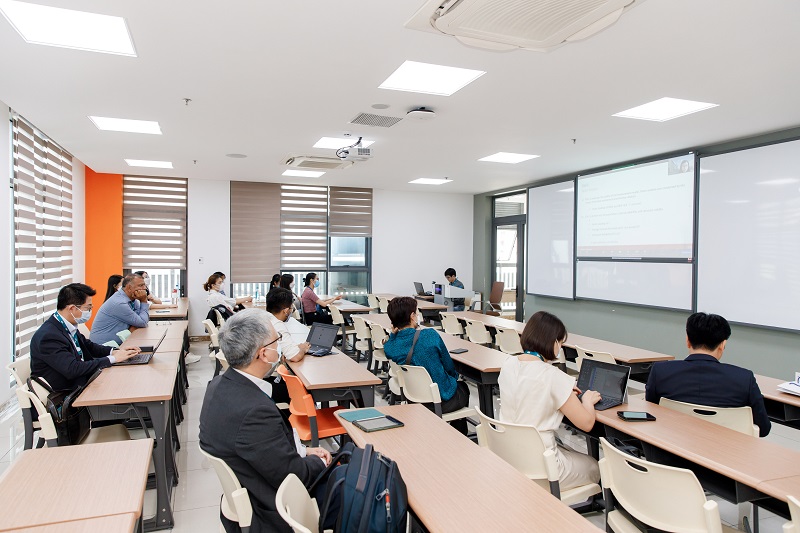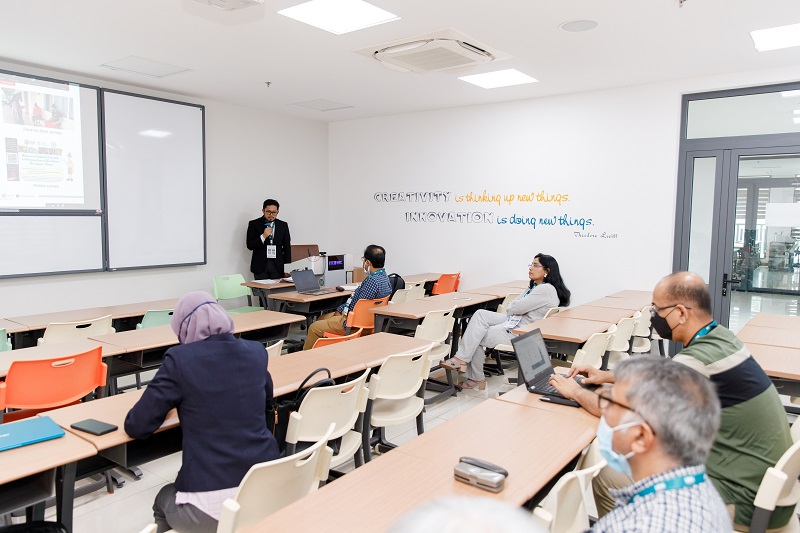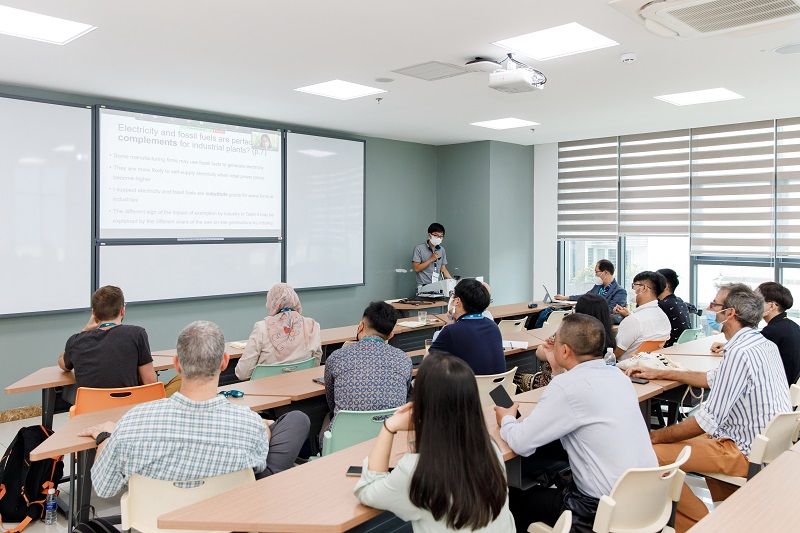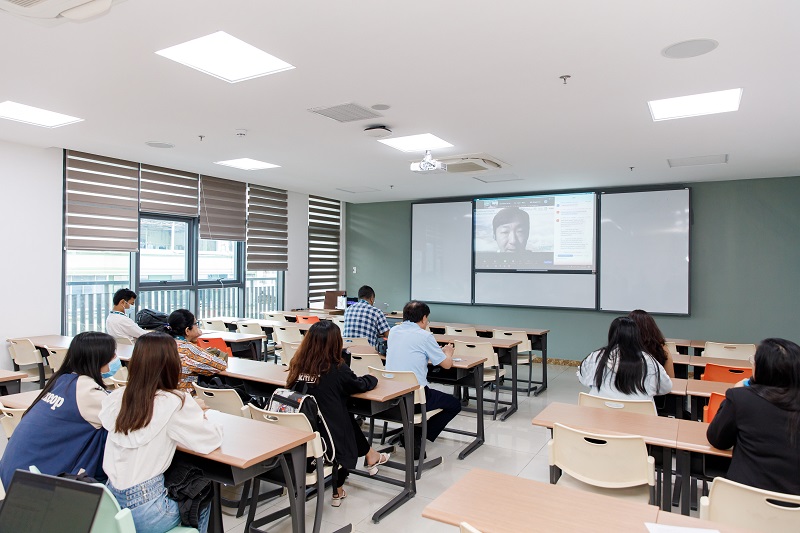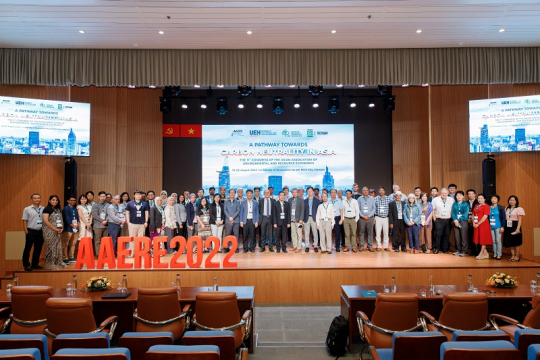More than 300 scholars around the world participated in the hybrid 11th Congress of the Asian Association of Environmental and Resource Economics (AAERE) on 19-20 August 2022. The congress connects scientists and policymakers, through in-depth discussions to find possible solutions for a sustainable future roadmap.
The event was hosted by the University of Economics Ho Chi Minh city (UEH University) with support from the Economy & Environment Partnership for Southeast Asia (EEPSEA) and Environment for Development in Vietnam (EfD Vietnam).
The congress is a forum for scholars to discuss in-depth not only carbon emissions but also important topics such as biodiversity, water quality, waste management, and environmental and sustainable development. A special session was devoted to an in-depth discussion for universities (University College London, University of Economics Ho Chi Minh City, Waseda University, and Australian National University) to share their strategies and action programs toward carbon neutrality, building and developing a network of sustainable universities.
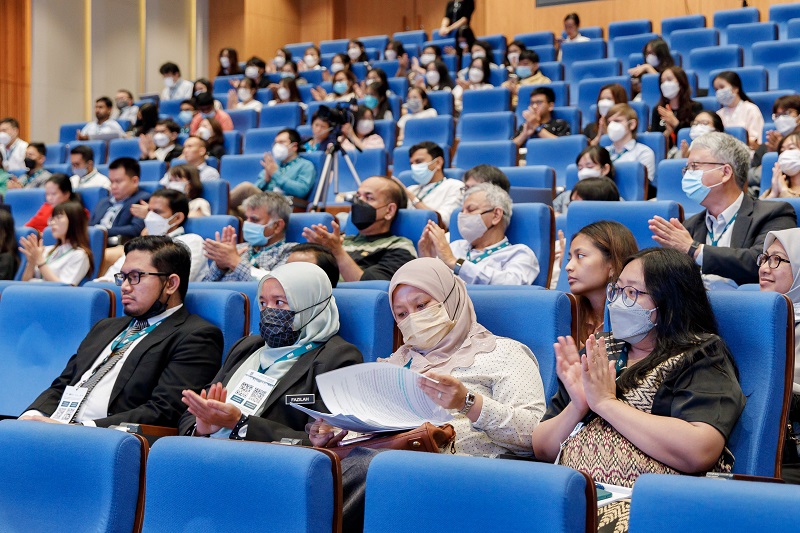
International researchers attended the plenary sessions
Among 205 papers from 130 research institutes, universities, and organizations in more than 30 countries were submitted. 150 papers were selected to be presented at the congress in 39 regular parallel, poster, and thematic sessions. Topics included among others carbon neutrality, impact and mitigation policies of climate change, renewable energy and electricity, non-market valuation, biodiversity and ecosystem management, waste management, and circular economy, low carbon building, house, and home appliances, climate change and food, forest and agriculture, community resilience, accelerating energy transitions. EfD Vietnam chaired a special discussion on Sustainable Energy in Southeast Asian Countries.
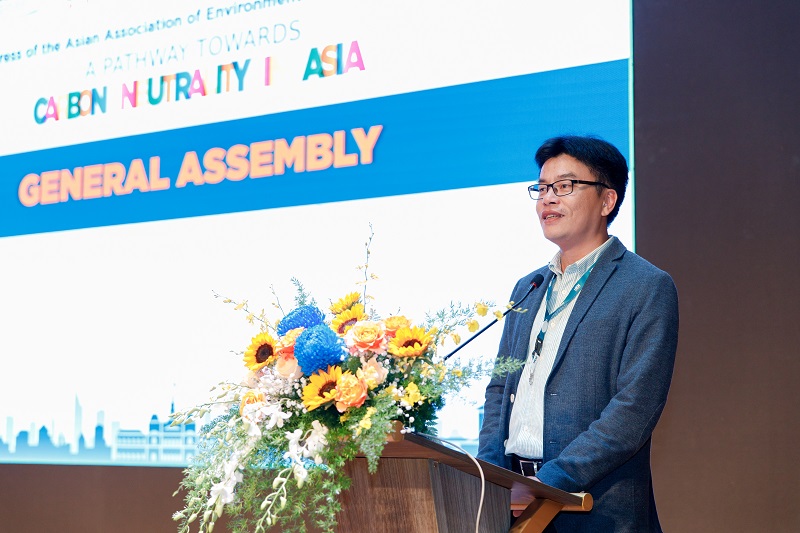
Dr. Pham Khanh Nam, Director of the EEPSEA Partnership and EfD-Vietnam, Chair of the Local Organizing Committee
Asia's net-zero emission roadmap is achievable, but lots of threats and challenges.
The highlight of the Congress was the presentations by two renowned speakers. On the first day of the congress, Prof. Paul Ekins from Institute for Sustainable Resources at the University College London presented the topic Getting to carbon neutrality: Challenges and implications for Asia. He emphasized that the reduction of carbon emissions in the short term has limitations such as reduced GDP, increased investment costs for carbon emissions reduction, etc., but in the long run, it brings many new opportunities for economic development from the reduction of carbon emissions and the development of renewable energy technologies. To move towards the carbon neutral roadmap, it is necessary to involve the governments of countries with policies to promote sustainable development and mitigate climate change, thereby reducing potential costs.
“Radical policy interventions are required to bring about the low-carbon technological revolution. Changing this political reality is the necessary condition for the adequate mitigation of climate change, and promoting environmental sustainability more generally, which will alone avoid the potentially enormous, but still very uncertain, costs of massive global change,” said Paul Ekins, UCL.
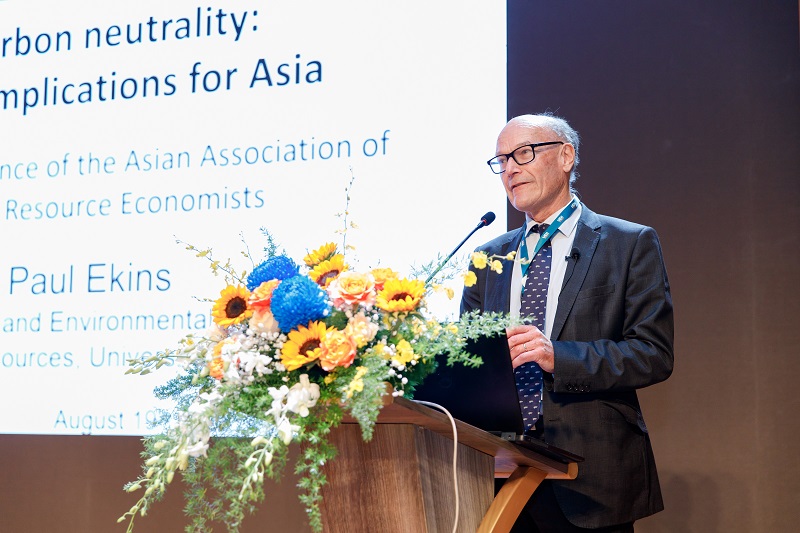
Prof. Paul Ekins, Institute for Sustainable Resources at the University College London
On the second day, Dr. Muthukumara Mani, Lead Environmental and Climate Change Economist for the Southeast Asia Region, World Bank, shared virtually the latest Vietnam Climate Change and Development Report, titled Reconciling Economic Success with Climate Risks in Vietnam with a proposal of six priority policy packages to balance Vietnam's economic and environmental goals successfully.
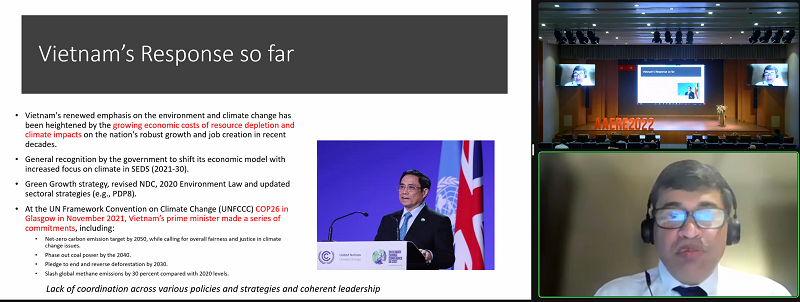
Dr. Muthukumara Mani (World Bank)
“Vietnam wants to achieve economic success by 2045. However, the climate risks could threaten those economic success expectations”, Muthukumara Mani said. “Vietnam’s 100 million people are among the most vulnerable in the world to the consequences of climate change, with an increasingly severe threat to agricultural, forestry, and fishery sectors”.
The congress was very successful in organization with high quality presentations and discussions.
